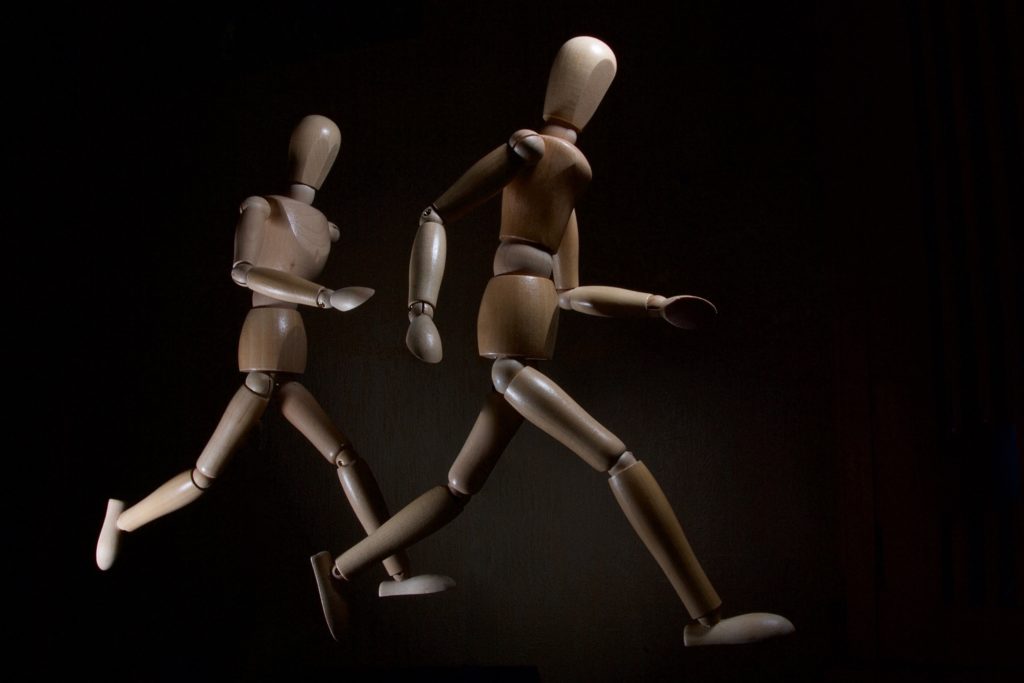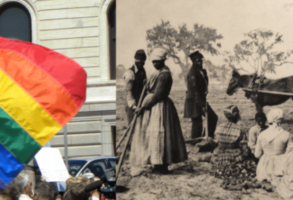
Published October 7, 2021
The amicus brief filed in the Dobbs case on behalf of more than five hundred women athletes is most instructive. It does not offer particularly sophisticated insights into the matter of abortion. On the contrary, it is rather banal in its use of the clichéd rhetoric of choice and rights. What’s interesting is the unselfconscious way it presents many of the oddities of our cultural moment as if they were obvious truths of nature. It reminded me of the rather unsettling passage in Descartes’s second Meditation where he describes looking out the window and seeing hats and cloaks moving around on the street below. He judges that they are men, but cannot be sure. They may, after all, simply be machines animated by ghosts or springs.
But before we address the Cartesianism of the brief, the most obvious burden of its argument is the repeated point that personal fulfillment of the individual on the individual’s own terms is the central point of life, as in this statement:
Amici depend on the right to control their bodies and reproductive lives in order to reach their athletic potential. Indeed, Amici are united in their belief that the physical tolls of forced pregnancy and childbirth would undermine athletes’ ability to actualize their full human potential.
The shift from “athletic potential” to “human potential,” as if the two were interchangeable or synonymous, is important. It indicates that actualizing human potential—that is, human flourishing—equates to whatever the individual humans concerned believe it to be (in this case, athletic performance). There is no human telos beyond the subjective.
Closely connected to this is the athletes’ repudiation of responsibility to anybody but themselves. Take this, for example, from an Olympic gold medalist:
When I was in college, I was on birth control, but I accidentally became pregnant. I was on scholarship, I was just starting to succeed in my sport, and I didn’t want to take a year off. I decided to have an abortion. I wasn’t ready to be a mom, and having an abortion felt like I was given a second chance at life.
In class I will occasionally slip into English idiom and refer to someone as having “fallen pregnant,” a turn of phrase that always amuses my American students and elicits the response, “Did she accidentally have intercourse, then?” Yet the Olympic medalist’s comments show that Americans too can “accidentally” become pregnant through consensual sex when they are not ready to be parents. To which the obvious answer is: If you are not ready to be a mother, you are not ready to have sex. But today technology relieves us of responsibility and can deal with an unintended pregnancy. An abortion can, after all, give you a second chance at life, albeit at the cost of another’s first chance at the same.
But most interesting of all is the notion of selfhood and embodiment expressed in the brief: The real self is the will; the body is just an external tool. This is hinted at in the contrast between men and women with regard to pregnancy:
If the State compelled women athletes to carry pregnancies to term and give birth, it could derail women’s athletic careers, academic futures, and economic livelihoods at a large scale. Such a fundamental restriction on bodily integrity and human autonomy would never be imposed on a male athlete, though he would be equally responsible for a pregnancy. . . .
Absentee fatherhood is a scourge on modern society but, even when the father is present and supportive, pregnancy always makes greater demands on women than on men. That is the result of basic biology. There is no reason why the law should be used in an attempt to eliminate that difference in the quest for equal rights for men and women rather than to define it in terms of their different responsibilities. No reason, that is, unless individual autonomy rules the day and the body itself is regarded as an appendage to the person.
That notion—that the body is merely an appendage—is clear in the strangely external way the brief talks about the body. The body, we are told, is “a critical tool for athletes”; women must have the power to “dedicate their bodies to athletics, pregnancy, or both”; the state should not “deny an athlete control over her body”; a woman should “retain control over her body.” And so on. Of course, most of us on occasion might use a phrase such as “I need to exercise to keep my body fit,” but in this brief the externalization and instrumentalization of the body is radical and relentless. At no point does the brief give the impression that these women are their bodies; rather, their bodies are tools and the battle for abortion is a battle about who controls that tool, the individual’s will or the state. No wonder that there is such consternation over the fact that men cannot become pregnant: They simply have the good fortune to be wills attached to better athletic instruments. And it would be unfair to the individual will to allow the shortcomings or strengths of the instrument to be enshrined in law.
Put bluntly, the anthropology of the brief is Cartesian. As Maurice Merleau-Ponty summarized Descartes’s thinking:
I can still define man without reference to the immediate structure of his being and as he appears to himself in reflection: as thought which is somehow strangely joined to a bodily apparatus without either the mechanics of the body or the transparency of thought being compromised by their being mixed together in this way.
Cartesianism, with its mind-body dualism, is generally regarded by academics as philosophical nonsense and (as Merleau-Ponty went on to argue) an inadequate way of thinking about human life as actually lived. It is nevertheless alive and well today on the left, evident in everything from transgenderism to women’s athletics and the legal arguments surrounding abortion. Progressive wisdom now blithely assumes that the body is not the person, just a tool. So next time you watch a women’s sports event, remember Descartes: Are you really seeing Megan Rapinoe score a goal, or merely surmising that the body, shorts, shirt, and boots kicking the ball are connected to Megan Rapinoe in some nebulous way? According to the anthropology of the brief to which Rapinoe has attached her name, you cannot be sure.
Carl R. Trueman is a Fellow at the Ethics and Public Policy Center.
Carl R. Trueman is a fellow in EPPC’s Evangelicals in Civic Life Program, where his work focuses on helping civic leaders and policy makers better understand the deep roots of our current cultural malaise. In addition to his scholarship on the intellectual foundations of expressive individualism and the sexual revolution, Trueman is also interested in the origins, rise, and current use of critical theory by progressives. He serves as a professor at Grove City College.










